Leading cryptocurrency exchange gate io
Digital sources in the Archive
The Institute of Historical Research’s annual History Day is an opportunity for students, researchers and history enthusiast to explore library, museum and archive collections. This year, due to Coronavirus restrictions, the event is being held online. Like many archives up and down the country, while physical access to our collection isn’t possible right now, we’ve been working hard to make more of our material available online and we thought History Day would be a good opportunity to show off some highlights of our digitised and born-digital collections.
Our collections
The university archive collections stretch over more than 180 years from the records of the original Royal Polytechnic Institution founded in 1838 to those of the present-day University of Westminster. As well as the institutional records of the university and its predecessors we hold material relating to the many clubs and societies that were associated with the Polytechnic, the papers of notable alumni such as the urban designer Gordon Cullen, and even the records of the Polytechnic’s own in-house travel company the Polytechnic Touring Association. We also hold collections that have been built up through the university’s teaching activities such as our collection of rare Architectural Books, the China Visual Arts Project, and the Westminster Menswear Archive. Researchers interested in the history of education, travel, sport, popular culture, town planning, architecture, fashion, design, and photography will find much of interest here.
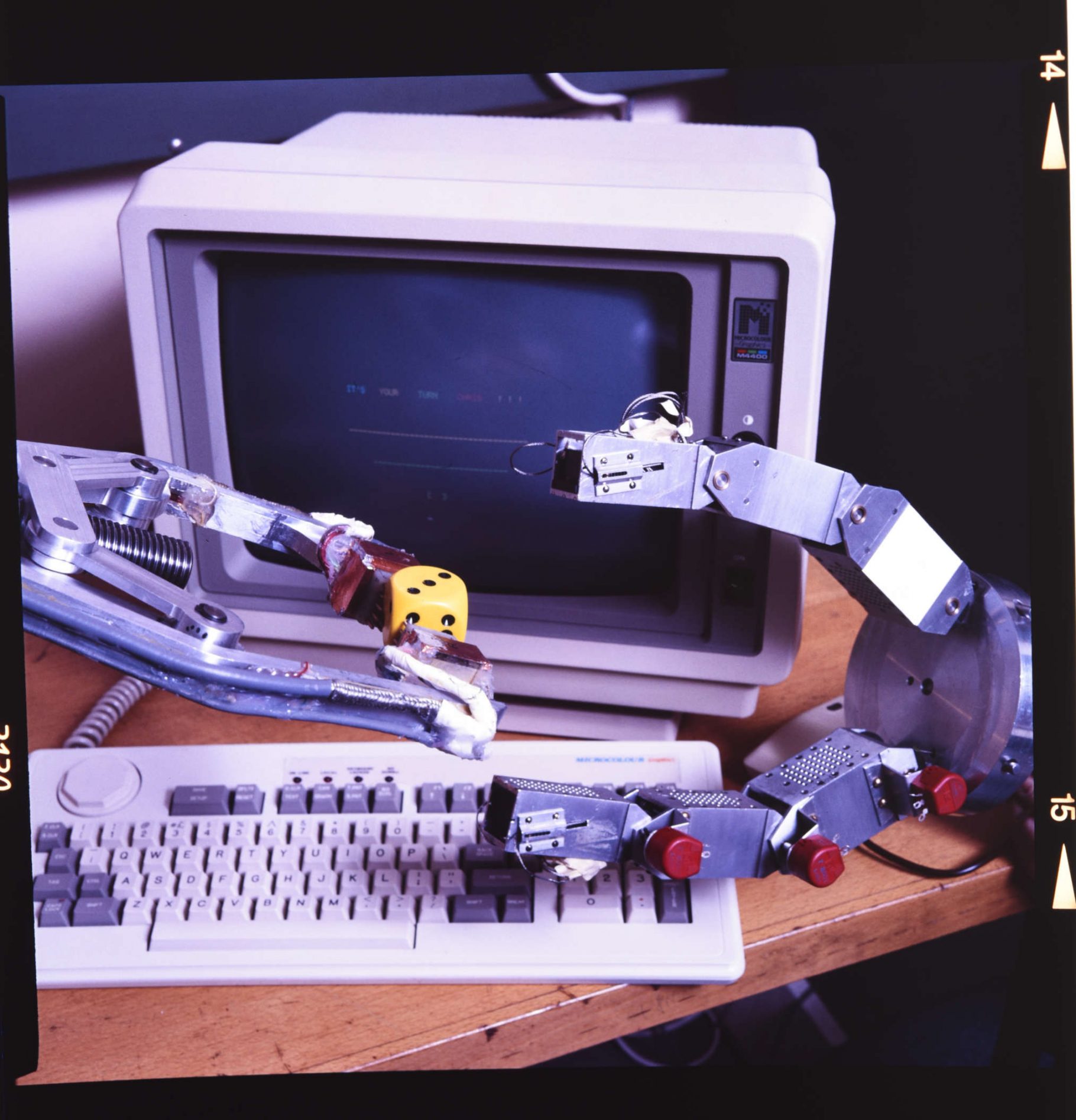
The Polytechnic Magazine
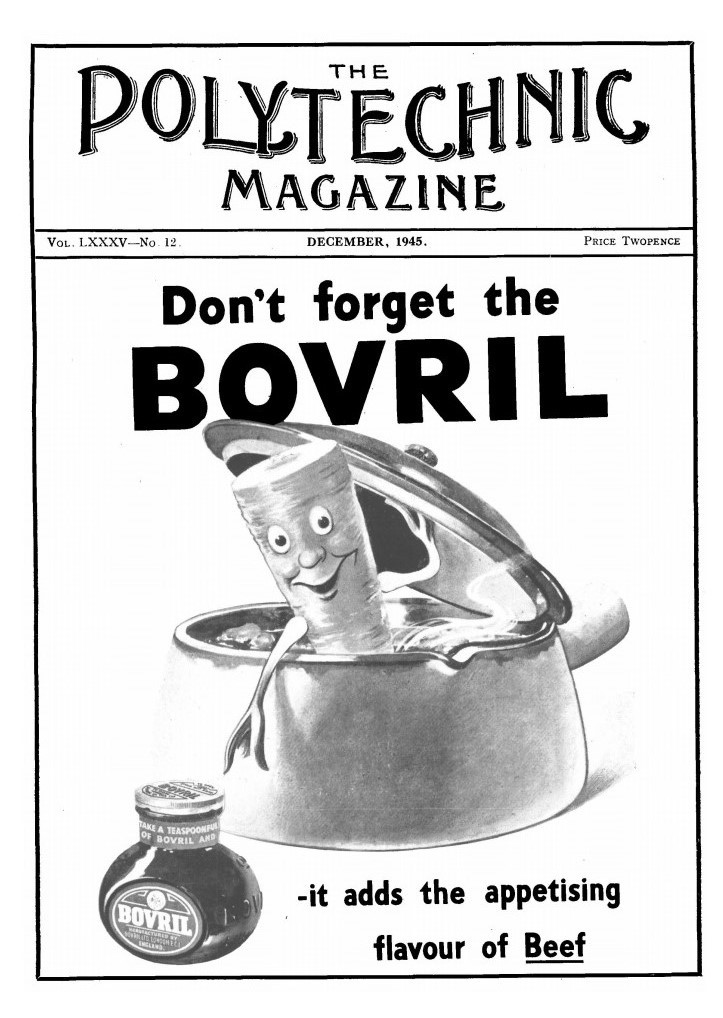
The Polytechnic Magazine was the in-house magazine of the Regent Street Polytechnic, one of the university’s predecessor institutions. The magazine ran from 1879 to 1971 and is a great resource for researchers with an interest in London, education, leisure, sports, or social history. As well as news of the Polytechnic’s activities, the magazine regularly featured personal news of members, reports from sports and social clubs, letters and commentary on current affairs and religious matters. Historians of media and design will also be intrigued by the changing layout, the use of images, and the many advertisements to be found within. The magazine has been digitised up to 1960 and is available to browse and search on our dedicated Polymags site.
The Regent Street Polytechnic
While many of our other holdings from the Regent Street Polytechnic era (1891-1970) are not currently available online, subseries RSP/7/k – “The Working Man’s University: The First Polytechnic”, which contains images from a 1949 publication, is a useful showcase of the educational activities of the Polytechnic. Researchers of the history of sport, gender, popular culture and dress will be interested in subseries RSP/7/c – Sports and Social clubs, which contains over a hundred digitised images, depicting social events and sports, many of them focused on women’s athletics. Material from the Regent Street Polytechnic fonds has also been supplemented by donated family papers such as those of Marion Taylor which include digitised images of events at the Polytechnic, especially women’s fencing and of Major Thomas Worswick, Director of Education at the Polytechnic, whose collection includes several digitised images taken during his service in the Royal Flying Corps during the First World War.
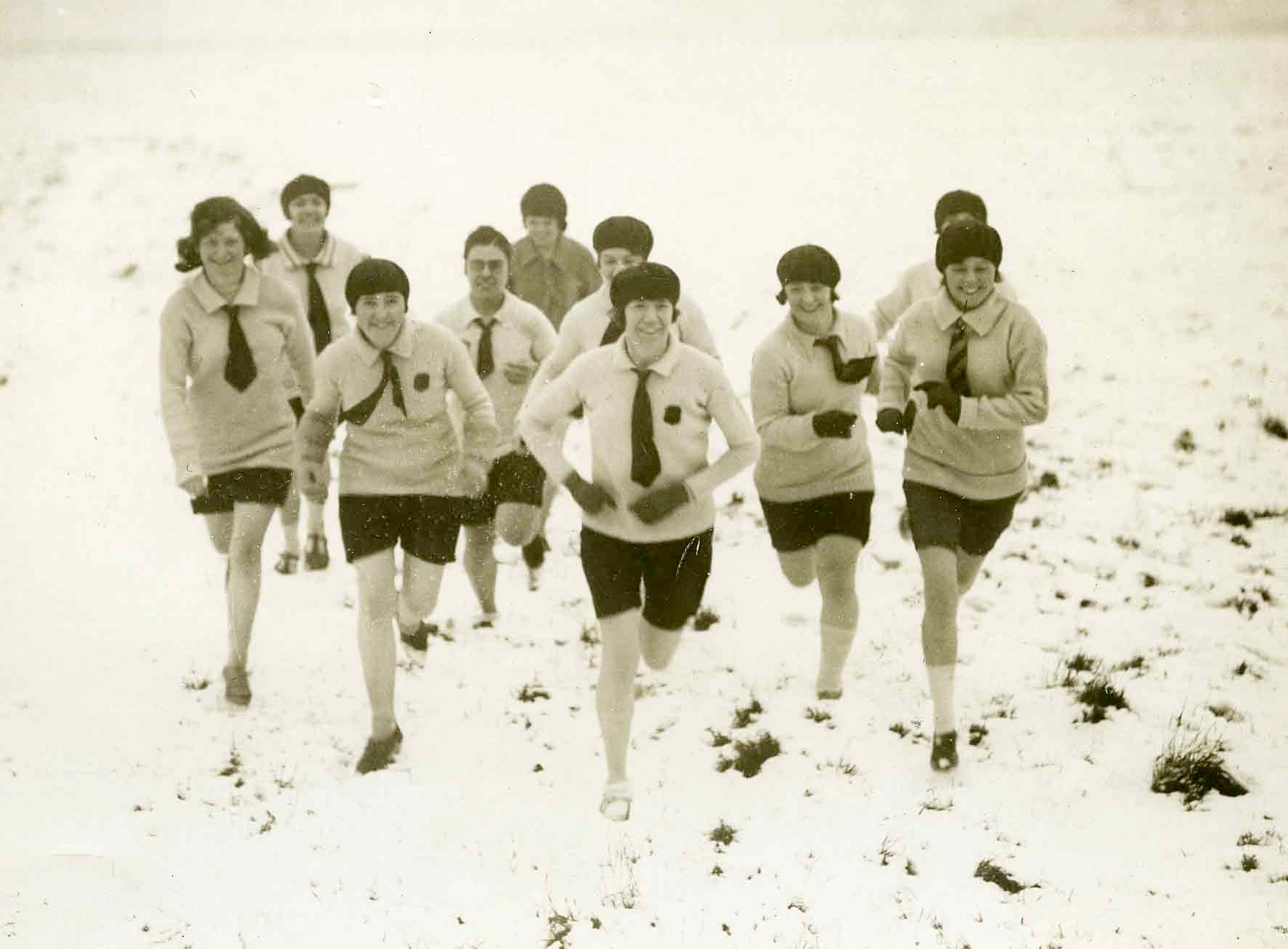
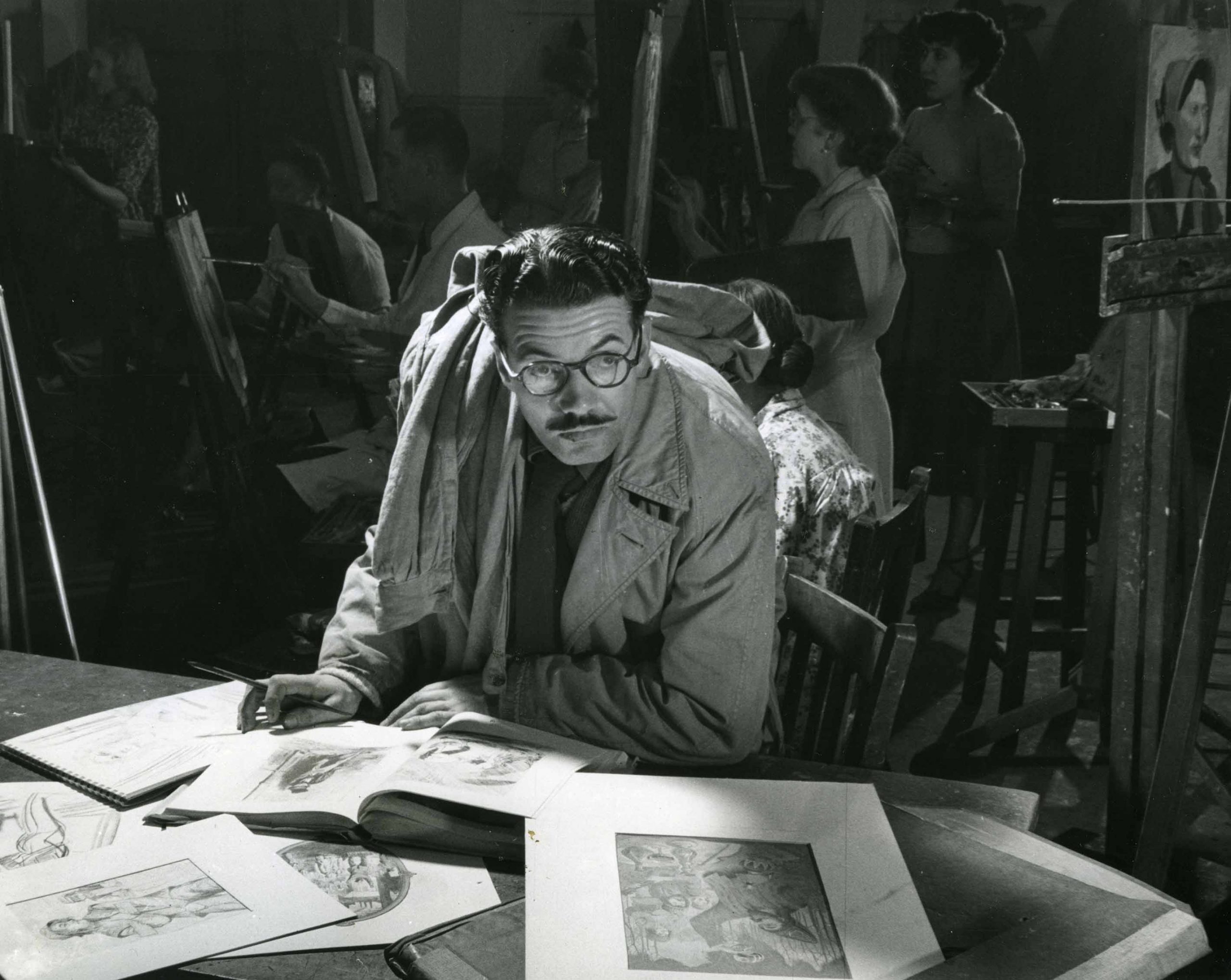
Clubs and Societies
![A page from the Polytechnic Cycling Club scrapbook, the page contains two captioned photographs. The first depicts a cyclist in cycling clothes following a pacing motorcyclist wearing leathers and helmet. Manuscript text written on the photograph reads: ‘To: Wally & Eileen Gray my Warmest Regards and Best Wishes. Harry Oxley. Polytechnic C.C’ and ‘Pacer: Geo. Cavanagh’ The photograph is captioned: HARRY OXLEY INJURED IN WAR. TOOK UP CYCLING TO STRENGTHEN DAMAGED LEG. 10 MILE [CROSSED OUT] NEU CHAMPTION MOTOR PACED 1925. 1 MILE RECORD 1924. 10 M RECORD 1935. 1927 10 MILE CHAMPION. 1935 10 MILE RECORD. 1937 2 MILE RECORD. 1938 20,25,30,40 MILE RECORDS. 1945 50 MILE RECORD The photograph below depicts three men in cycling clothes sitting on grass. A bicycling is visible on the floor in the background along with another seated man. The photograph is captioned: HARRY OXLEY. H WYLD. WING](https://recordsandarchives.westminster.ac.uk/wp-content/uploads/sites/42/2020/10/PCC-9-6_126-2-1774x2573.jpg)
Another rich source of material can be found in the collections of the many clubs and societies that were a central part of Polytechnic life in this period. The Polytechnic Harriers Athletic Club had a long and storied history, including organising the marathon at the 1908 London Olympics and it had established eleven world records by 1914. Perhaps unsurprisingly, club members were keen to record their achievements and we have digitised a large collection of their photograph albums, held in subseries PHA/8/1 – Photograph albums which contains more than 500 annotated images. Similarly, the Polytechnic Cycling Club records contain several hundred digitised images, most notably from the club scrapbook found at PCC/9/6 – Gray Scrapbook. The scrapbook is a fascinating composite artefact, containing material from as early as the 1885 that was compiled and added to by successive generations of club members from 1954 to 2007. As well as being an important source of material on the history of sport, these records offer a remarkable insight into practices of sociability and memorialisation.
The Polytechnic Touring Association
In the late nineteenth-century the Polytechnic began organising inexpensive overseas trips for students and members. The Polytechnic Touring Association became a pioneering travel operator, opening up opportunities for foreign travel to an audience that had hitherto been excluded. Researchers with an interest in the history of leisure and the dawn of mass tourism will find these records an invaluable resource. The archive has made available more than 200 postcards as part of subseries PTA/2/4 – Postcards, offering a distinct view of how early tourists described their experiences. The collection was also digitised in its entirety as part of Adam Matthews Leisure, Travel and Mass Culture resource (University of Westminster staff and students can access this free of charge).
![PTA_2_4_2_124 Image on half of the front of the postcard, blue-tinged, shows the chalets in the foreground with the lake and Mount Pilatus in the distance. Used. Inscribed on the front in pen: 'D[ea]r Edgar, I have not seen any stamps you enquired about, so send you a picture card, we are just off to Milan now. Kind regards to Mrs Newton. Yours faithfully, W O C Taylor'. On verso, addressed to Mr Edgar Newton, 15 Buckingham Road, Brighton, Sussex, England. Stamped and postmarked 2 May 1899.](https://recordsandarchives.westminster.ac.uk/wp-content/uploads/sites/42/2020/10/PTA_2_4_2_124-2.jpg)
Gordon Cullen
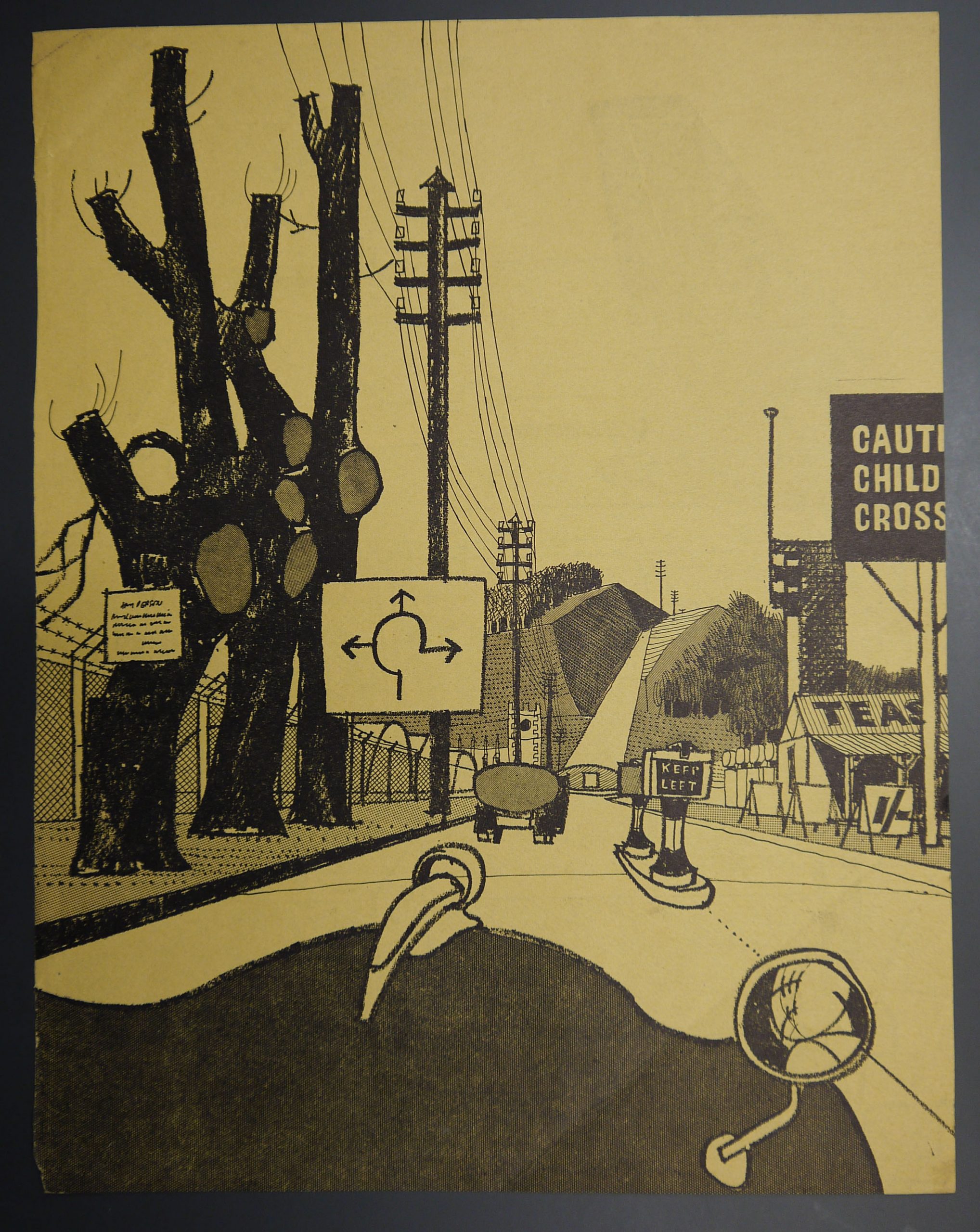
The urban designer and theorist Gordon Cullen, best known for his influential work ‘The Concise Townscape’, studied Architecture at the Regent Street Polytechnic and his personal papers and drawings are held by the university archive. Although the material has not yet been fully catalogued, more than 2000 sketches, plans and notes have been digitised and are available on the archive catalogue, offering a fascinating insight into Cullen’s interests and working processes. More information on the Cullen collection is available on the Archive Blog.
The Polytechnic of Central London
In 1970 the Regent Street Polytechnic merged with Holborn College of Law, Languages and Commerce to form the Polytechnic of Central London. As with the Regent Street Polytechnic many of our records for this period are not available online, but the archive has digitised several sets of slides and photographs. Researchers with an interest in the architecture and design of the period will find series PCL/7/a – Buildings. The digitised slides from library talks, available in PCL/2/Lib/6 – Slides: Introduction to PCL Library Services will appeal to researchers interested in early information technology. The records of the Polytechnic of Central London have been supplemented by the archive’s Oral History Programme which consists of interviews with former staff and alumni. While the full interviews are not available online, indexes can be browsed on the catalogue and excerpts are available on the archives website.
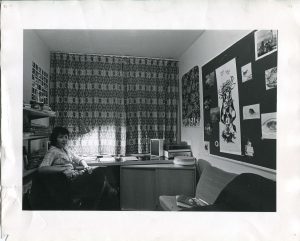
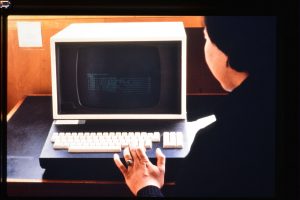
The China Visual Arts Project Archive
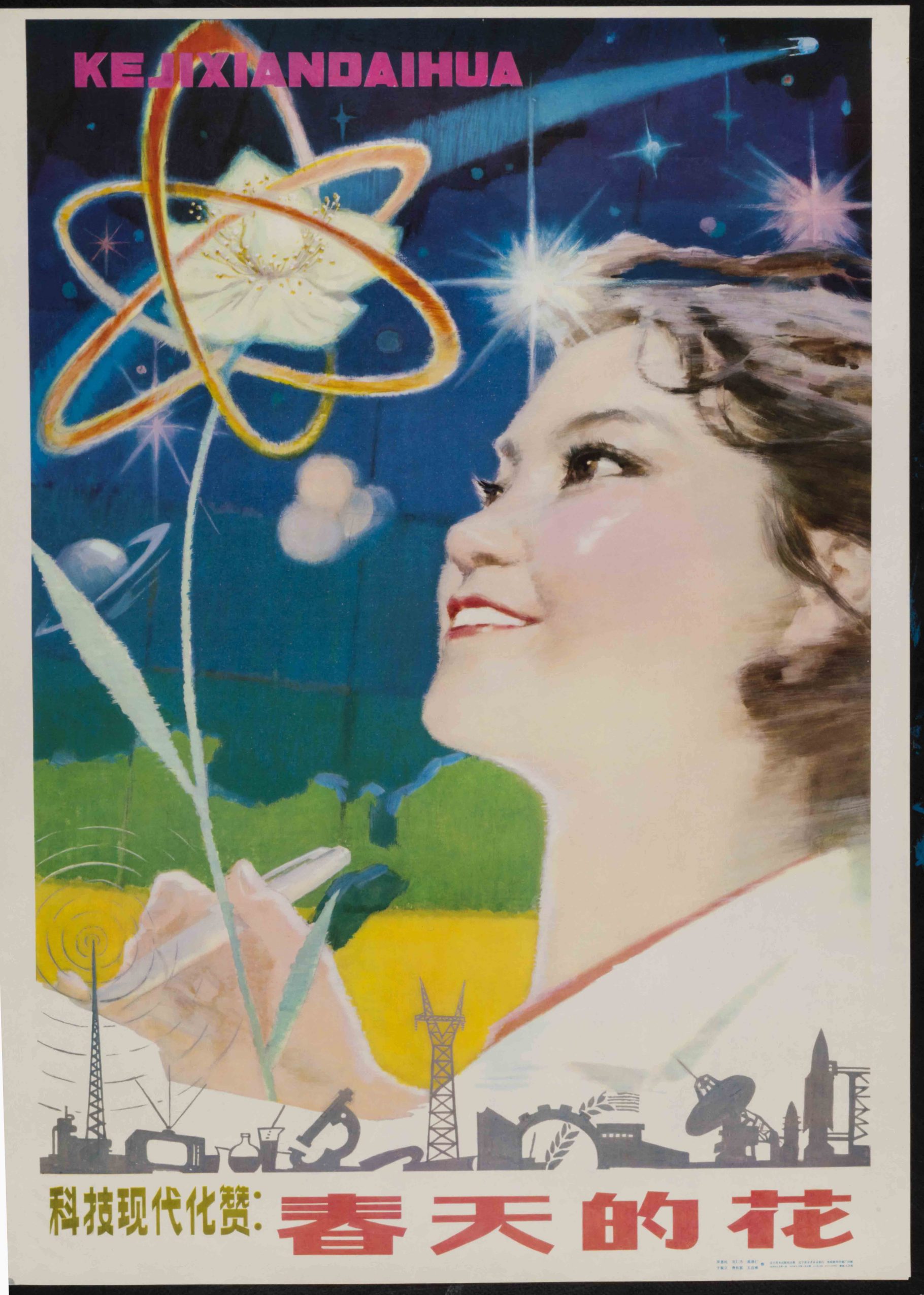
The China Visual Arts Project was founded in 1977 by John Gittings, writer and former China correspondent for the Guardian, when he worked in the Chinese Section of the Polytechnic of Central London. The collection was created as a teaching aid at a time when access to Chinese visual material was limited. Although the physical collection contains books, objects, ephemera, and slides, it is best known for its large collection of propaganda posters, more than 800 of which are available online in series CPC/1 – Chinese Poster Collection. The collection is arranged thematically, and it has particular strengths covering the Cultural Revolution (1966-1976) and the ten-year period after Mao’s death (1976-1986). As well as its obvious relevance to historians of China, the collection will appeal to researchers looking at design, printing and propaganda more generally, as well as those interested in Western attitudes to China and Maoism. In 2016 Yishu (Cassie) Lin, then a doctoral student and Archive Assistant at the University of Westminster, made a short film introducing the posters.
The University of Westminster
In 1992 the Polytechnic of Central London became the University of Westminster. As the university entered the digital age, so we see a proliferation of born-digital material. Section UOW/1 – Governing Body and Committees includes the published minutes of the governing bodies of the university, nearly 300 of which are now available online. Over 6000 digitised slides and born-digital images are available in UOW/7 – Photographs and paintings, providing a vivid visual record of the university’s activities over the last three decades, as well as offering insights into the changing technology, architecture, fashion, design and photography of the recent past.
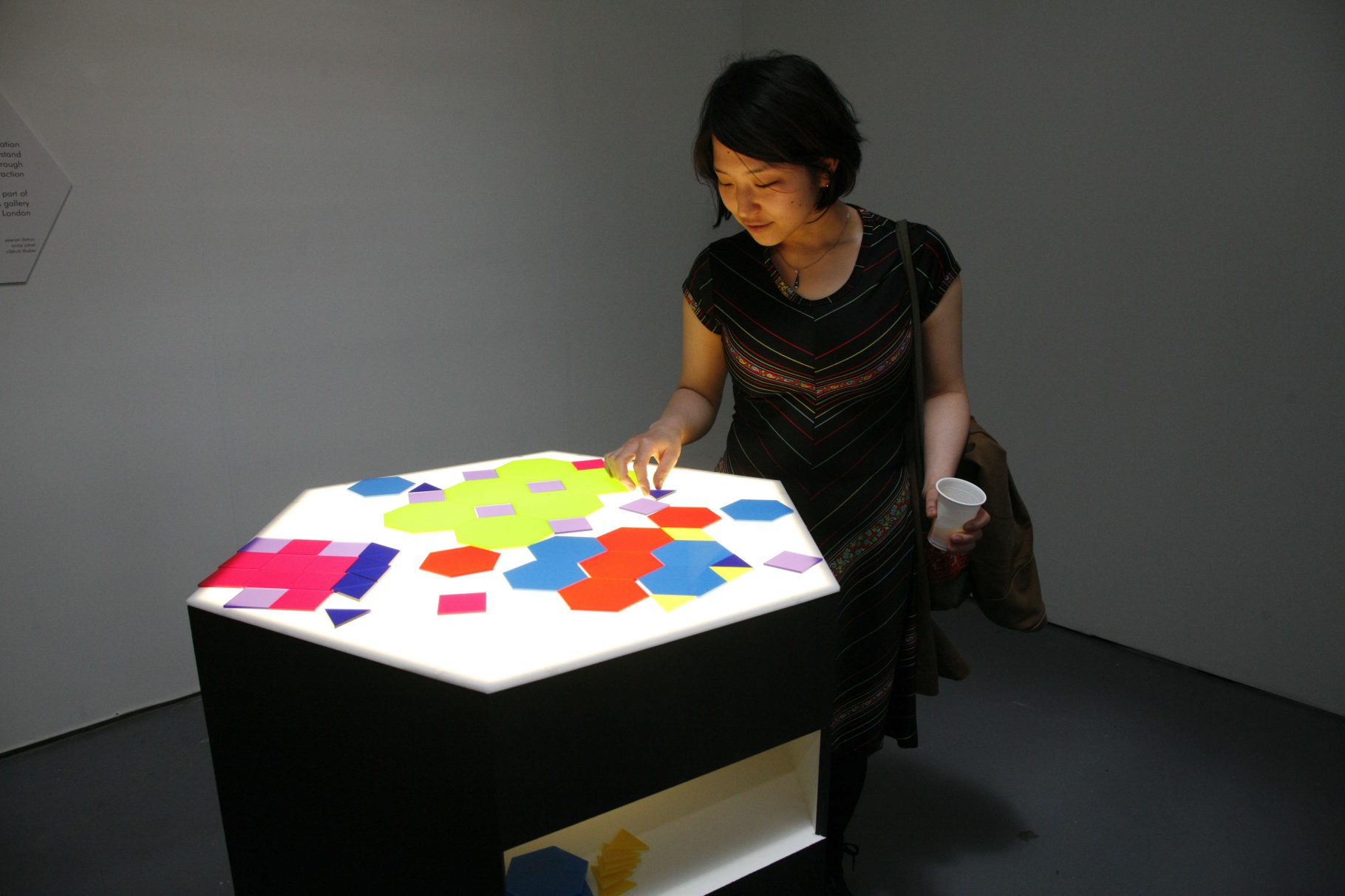
Westminster Menswear Archive
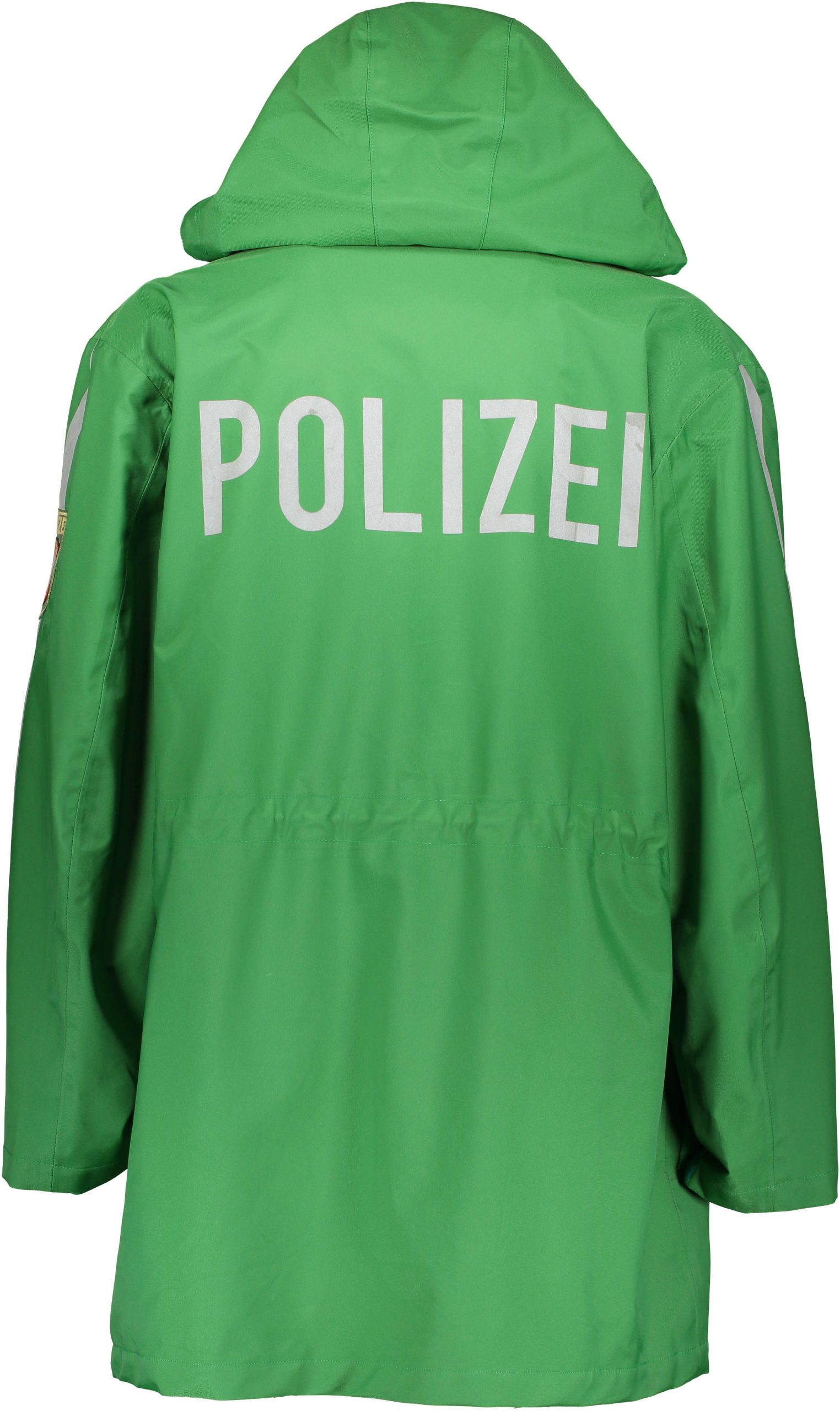
The Westminster Menswear Archive was founded in 2016 by Andrew Groves, Professor of Fashion Design. The collection supports the university’s teaching and learning by enabling fashion students to access garments for inspiration and to develop their understanding of the design process. This mirrors the primary research method used within the fashion industry, and the collection also serves as a resource for the wider industry. The collection houses over 1800 pieces and there are more than 500 digital images of garments available on the archive catalogue. This material is supplemented by over 200 digital images held by the university archive as part of UOW/7/d/4/14 – Invisible Men exhibition which documents a major exhibition held in October 2019 at the university’s Ambika P3 gallery.
Further resources
Additional online resources and research guides are available on our website and through the archives catalogue. We have also recently produced a guide to Finding and Using Digital Archives during Covid-19 aimed at helping researchers critically engage with digital material. Several books on the history of the university and its predecessors are also available to buy or download for free from the University of Westminster Press. Finally, if you have any questions about using the resources discussed above or any of our collections, please get in touch with us via archive@westminster.ac.uk.
Jacob Bickford, November 2020